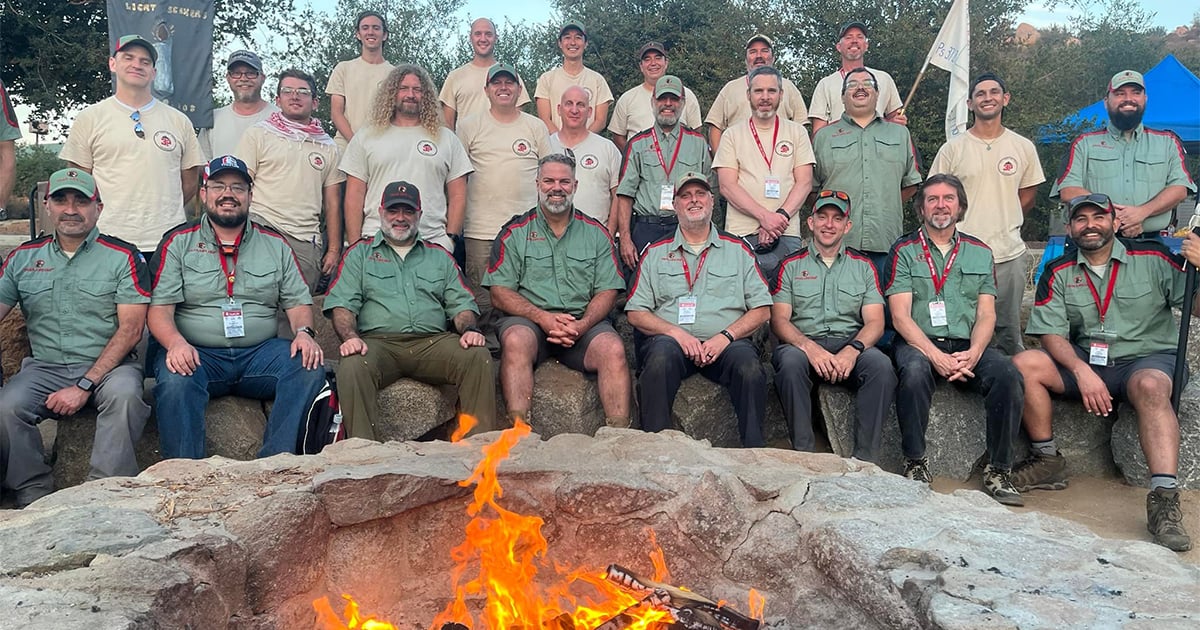Men Are the Method
“The Church is looking for better methods. God is looking for better men.”
—E.M. Bounds
There’s a defining moment in every story of faith—the moment God calls His servant to step forward and take action. The air is thick with uncertainty. The task seems too great. And yet, into trembling hands, God places His purpose.
He puts the net in Peter’s hands. The sling in David’s. The staff in Moses’. It’s the way of God not to do everything Himself, but to empower His people to rise, to lead, and to shape what’s been entrusted to them.
This has been His way since the beginning. God formed the world not by snapping His fingers, but by shaping raw materials. He made dust—and then formed Adam from it. He created the chaos of elements—and then organized them into oceans, skies, stars, and soil. God’s pattern was clear: take what is unfinished, and form it into something good.
Then He gave that task to a man.
Adam’s calling was to follow God’s lead: to take what was raw and bring it to order and purpose. That’s still how God works today. He could accomplish His will in an instant, yet He chooses to work through people—often through men—shaping them as they shape others.
The Empowering Pattern of Jesus
The life and ministry of Jesus continues this pattern.. At His birth, the Creator of the universe relied on the hands of a young mother to feed, carry, and protect Him. He could have performed every miracle, preached every sermon, and led every disciple Himself—but He didn’t. Again and again, He humbled Himself, inviting others into His mission:
- Before John proclaimed Him the Lamb of God, Jesus asked John to baptize Him.
- Before the Samaritan woman carried living water to her city, Jesus asked her for a drink.
- Before feeding the 5,000, He asked a boy to offer five loaves and two fish.
- Before turning water into wine, He told the servants to fill the jars.
- Before washing His disciples’ feet, He let a woman wash His with her tears.
- Before revealing Himself as risen, He told Peter to try the nets one more time.
One of the most profound lessons from Jesus’ ministry is that He empowered others. Jesus didn’t need help—but He welcomed it anyway. He gave others ownership in His work. He let them lead. And when it came time to send out His disciples, He did it in pairs—men shoulder to shoulder, carrying out the mission of God.
This is not just a theology of teamwork. It’s a theology of transformation. Jesus knew that when men are trusted to lead, they grow into who they were created to be.
This truth has massive implications when it comes to male discipleship today. Because when it comes to empowering men and raising boys into godly men, nothing else will do. Programs can’t replace presence. Curriculum can’t replace character. It takes men—faithful, present, godly men—to show boys the path to manhood and encourage one another along the way. Men are not just a part of the method. Men are the method.
Why Empowerment Matters
Men and boys grow strong when they are entrusted with real responsibility. Most men don’t bond face-to-face—they bond shoulder to shoulder. They connect by building, sweating, solving, and struggling. And through that, they grow stronger—together.
Jesus knew this. That’s why He sent His disciples out with real assignments. That’s why He asked for help, even when He didn’t need it. Responsibility was part of His discipleship strategy.
Today, if we want strong, godly men, we can’t just offer them a seat in a pew. We must give them a role in the mission. Because when men are handed responsibility, something stirs. They rise. They lead. And their strength spreads.
And the need has never been more urgent.
- Over 18 million children in America are growing up without a father in the home.
- Boys without fathers are more likely to struggle in school, in relationships, and in faith.
- But those who serve in church and have mentors are far more likely to follow Christ into adulthood.
The math is simple: when men step up, everything changes.
The Trail Life Way
That’s why in Trail Life USA, boys and men don’t sit on the sidelines—they lead.
Boys plan trips, run meetings, solve problems. Men don’t hover—they walk with them. They share wisdom, offer guidance, and model grit.
Around the fire and on the trail, boys learn what it means to be trusted. To take ownership. To fail. To try again. To grow. And fathers? They get to witness it. They get to be the example.
Mentorship doesn’t happen through lectures. It happens shoulder to shoulder—by doing life together. Outdoors, experience is never obsolete. Boys need men. Men grow together while leading boys. And in that tension of giving and receiving, both are shaped into who God designed them to be.
The Ripple Effect
When men are empowered to lead, confidence takes root. Purpose deepens. Faith ignites. Husbands return home with vision. Fathers lead with fresh strength. Sons see what faith looks like lived out—and start to follow it.
Boys need challenge. In the wilderness of boyhood, courage is tested, character is forged, and the seeds of manhood are sown.
Conclusion: Men Are the Method For Raising Men
When it comes to raising men, the most effective method is clear: Men. Godly men. Present men. Men who lead.
Because a boy can’t become a man in theory. He has to see it lived. And a man becomes who he was made to be when he takes responsibility for shaping others. God loves to use men to do His work—especially when it comes to raising boys into men.
So here’s the question: Will we empower men to rise to the occasion? Or will we leave the next generation to face the wilderness alone?



